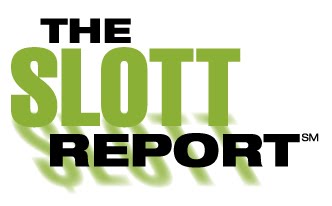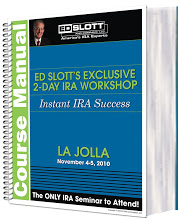The first part of the Q of the Week on Disclaimers was posted on September 7th. CLICK HERE to read Part 1. Below is Part 2 -- a special Tuesday edition of Question of the Week.
Today, we discuss some of the rules and mistakes to avoid after death in order to execute qualified disclaimers. Want to know what they are? Read on to find out.
What’s the best advice to give to someone who may want to consider executing a disclaimer after a death? Two words… …TOUCH NOTHING. Why is it so important not to touch anything? It’s very simple… …once you touch it, you can’t disclaim. So if you decide to take $10,000 out of Uncle Bob’s IRA in order to pay for his funeral expenses, you’ve just blown your opportunity to disclaim that account. One exception to this rule applies to the withdrawal of a required minimum distribution (RMD). You can still disclaim the balance of the account after the RMD is withdrawn. This allows the beneficiary to take the RMD and avoid the 50% penalty on an RMD not taken while they are considering a disclaimer.
Another key point you need to be aware of is the time frame within which a disclaimer must be completed. In general, you’ll have nine months from the date of death to execute a valid disclaimer (a minor beneficiary has nine months from the date they turn 21). That’s a pretty long time, but you’d be surprised at how fast that time can fly by when you are occupied with all the other loose ends that need to be tied up after such a traumatic event. So it’s best not to wait until the last second to start weighing the benefits and/or drawbacks of the disclaimer. Like any big financial decision in life, it’s not something that should be rushed, but rather, it should be carefully evaluated. Not to mention that missing the deadline could end up costing you or other loved ones thousands of dollars in estate tax that otherwise may have been avoided.
Finally, you can’t just call up your IRA custodian and say, “Hey, I wanna do that disclaimer thing.” The disclaimer must be in writing - which is definitely something you’ll want to work with a good estate planning attorney to prepare.
Here’s a bonus tip most people, and even most estate planning attorneys don’t often consider. Make sure that your IRA custodian will even accept the disclaimer. What good is all the planning if it turns out that your custodian won’t honor the disclaimer anyway? If that’s the case, perhaps it’s time to make a change of custodians now to avoid the trouble later.
The points above are all critical, but perhaps the best advice is to make sure you consult a qualified professional who can give you the guidance you’ll will need. In all likelihood this will be an estate planning attorney, but a knowledgeable CPA or Financial Advisor should be able to give you some guidance as well.
Got more questions?? Want to see what other people are asking? Check out the Ed Slott and Company IRA Discussion Forum.
By IRA Technical Consultant Jeffrey Levine and Jared Trexler
------------------------------------------------------------------------------
Comment, Question, Discussion Topic on your mind? Click on the Blue Comment Link below and leave your thoughts then check back to see what other consumers and advisors think.
*Copyright 2010 Ed Slott and Company, LLC
Tuesday, September 28, 2010
Q of Week: Disclaimer Part II
Posted by
Ed Slott and Company, LLC
at
11:06 AM

 Labels:
IRAs,
Jeff Levine,
Q of the Week,
Retirement
Labels:
IRAs,
Jeff Levine,
Q of the Week,
Retirement
Subscribe to:
Post Comments (Atom)














0 comments:
Post a Comment